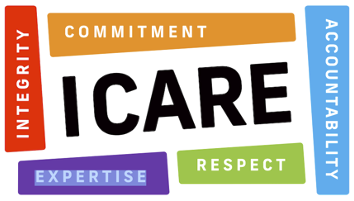Lately, you can’t scroll through your feed or browse an article without bumping into the talk of values in organizations. The discourse is so all-encompassing; it’s as if values are the new air we breathe. There’s a camp of thinkers who believe values should be aspirational, asserting that they can catapult an organization to new heights of energy and dedication. Then we have those who argue the complexity of values, pointing out the subjective nature that makes them susceptible to being labelled as “bad” or “good.”
The Malleable Nature of Values
Values? They’re not these monolithic, one-size-fits-all entities. Oh no, they mean different things to different people. A value’s significance stems from two main factors: the environment one has been exposed to, and the geographical landscape one inhabits. So, yeah, is a value universally “good” or relevant? Not a thing. It’s intricate, it’s deeply personal. Take respect, for example. What one culture deems respectful; another might find utterly offensive. You see this fluidity in action when you consider:
- Southeast Asia: Respect involves deferring to elders and authority, and it is often construed as aggressive if you question a manager. This stems from a collectivist, hierarchical tradition.
- The Gulf Region: Respect here means sticking to social hierarchies, normalizing ideas before proceeding, and honouring traditions crucially.
- Europe: Individual autonomy is key. Respect involves direct communication, often circumventing group confrontations.
- North America: Respect is often about voicing oneself and sharing differing views, even with a higher-up. The individualistic, egalitarian nature here is worlds apart from Southeast Asia.
Labelling values as “bad”? Usually, it’s a matter of perspective, often shaped by those with contrary views. This subjectivity is why slapping your values onto someone else can lead to more friction than resolution, especially in a diverse workplace.
The Perils of Generic Value Assessments
Bland, one-size-fits-all values exercises or surveys? Don’t even get me started. They overlook the unique tapestry of specific company cultures or regional distinctions. Adopting such generic measures could drag your organization downwards. This is why understanding values’ relative, subjective nature is essential to avoid misunderstandings or, worse, the disintegration of team cohesion.
Addressing Harmful Beliefs
Yes, some beliefs and values are downright detrimental. Challenging values that harm or violate human rights is absolutely necessary. When confronted with harmful values, it’s about dialogue and education. But when the other person’s or company’s values are not violating human rights and dignity, bulldozing their value system because you perceive it inappropriate is inappropriate.
The Impact of Aspirational Values
 When company leaders spell out values, they lay down the organization’s commandments. But let me tell you, employees are intelligent cookies. They’ll see right through the charade if leaders don’t walk the talk. Label values as aspirational, and you’re brewing a pot of cynicism.
When company leaders spell out values, they lay down the organization’s commandments. But let me tell you, employees are intelligent cookies. They’ll see right through the charade if leaders don’t walk the talk. Label values as aspirational, and you’re brewing a pot of cynicism.
Ah, aspirational values—that grand illusion. Too often, companies touting these find themselves in a pit of perceived hypocrisy. Employees feel like these “values” are ethereal and unachievable, and worse, they foster an environment ripe for blame and confusion. When real-life actions don’t match lofty aspirational values, trust erodes quicker than you can say “inconsistent.”
To avoid spiralling into these pitfalls, organizations must abandon their idealistic and aspirational values, stick to their authentic values, and build solid systems around them.
The Impact of Aspirational Values
When leaders and companies articulate their values, they set the stage for expected behaviours, essentially laying down the organizational code of conduct. However, what happens if leaders label these values as aspirational, allowing others to act as they wish? Cynicism breeds among employees, plain and simple. Let me be crystal clear – employees at almost every company level will notice when leaders are not walking the talk. Want proof? Check out my article: [“Earned Cynicism”](https://sagltd.com/articles/earned-cynicism/).
Values cannot be simply aspirational. That mindset opens the floodgates for excuses and potentially catastrophic failures like Enron, Wells Fargo, Volkswagen, Uber, and Boeing. Values are the bedrock of right and wrong. When values are codified within an organization, they serve as the foundation for its ethical code of conduct and the lifeblood of its culture. These values are essential, non-negotiable principles that define the organization’s identity and guide its actions in every circumstance.
Saying “core values” implies the existence of other, perhaps secondary values you could draw upon if a situation necessitates a different decision or action. Those ‘other values’ are not true values. They’re situational beliefs. Labelling values as ‘core’ can be misleading, making people rationalize actions that suit them at the moment by conveniently switching to these ‘other values.’
 From my experience with leaders who tout their values as aspirational, I’ve noticed a recurring theme: employees feel the company lacks authenticity. These aspirational values come across as ethereal and intangible, failing to become a focus for all employees. When decisions are made, or people are treated outside the ‘aspirational’ values framework, employees become confused and frustrated. This erodes credibility and trust in leadership. Conflicting decisions and inconsistent treatment according to a hodgepodge of values stymie effective decision-making and lead to missed opportunities. Ultimately, it creates a lack of accountability and fosters a “blame environment” as policies remain murky.
From my experience with leaders who tout their values as aspirational, I’ve noticed a recurring theme: employees feel the company lacks authenticity. These aspirational values come across as ethereal and intangible, failing to become a focus for all employees. When decisions are made, or people are treated outside the ‘aspirational’ values framework, employees become confused and frustrated. This erodes credibility and trust in leadership. Conflicting decisions and inconsistent treatment according to a hodgepodge of values stymie effective decision-making and lead to missed opportunities. Ultimately, it creates a lack of accountability and fosters a “blame environment” as policies remain murky.
To avoid these detrimental outcomes, organizations must distance themselves from aspirational values. Instead, they should adhere to authentic values, ensuring they have concrete plans and systems that align with these genuine values.
Values and Principles Are Different
While principles and values can sometimes be conflated, they aren’t always interchangeable or hierarchical. Principles often denote fundamental scientific truths or theories that inform behaviour. Conversely, values represent what an individual or group sees as their truth, their ethical grounding. Recognizing that values are subjective and relative to the person holding them is absolutely essential. Try imposing your meaning of values on someone else, and you’re bound to spark unwanted conflict.
 Sure, there are moments when principles and values seem to overlap. But it’s critical to understand that principles typically refer to foundational truths or guidelines shaping behaviour. In contrast, values signify what individuals or groups consider essential or worthwhile. The distinction might be subtle but context-dependent. Not grasping this nuance can lead to misunderstandings and conflict, especially in diverse settings.
Sure, there are moments when principles and values seem to overlap. But it’s critical to understand that principles typically refer to foundational truths or guidelines shaping behaviour. In contrast, values signify what individuals or groups consider essential or worthwhile. The distinction might be subtle but context-dependent. Not grasping this nuance can lead to misunderstandings and conflict, especially in diverse settings.
So, remember: valuing the subjective and relative nature of values can help you navigate the intricate landscape of human beliefs and ethical frameworks. This understanding is invaluable when managing teams or interacting with people from different cultural backgrounds.
Conclusion
Understanding that values are subjective and context-dependent is absolutely essential for organizations. Imposing a one-size-fits-all definition can be a disaster, as what is deemed respectful or ethical can vary dramatically across different cultural and geographic contexts. Effective organizational values must be sensitive to these contexts and aligned with the environment’s existing and authentic cultural norms.
Now, about those aspirational values—steer clear. Promoting values that aren’t actively practiced does nothing but breed cynicism among employees and gives the impression that leadership isn’t genuine. Instead, the focus should be on defining and consistently practicing authentic values that truly reflect the organization’s principles. This approach fosters a cohesive work environment, builds trust, and ensures that the organization’s actions align with its stated values. This, in turn, avoids the pitfalls of perceived hypocrisy and employee disengagement.
 Ultimately, values should be seen as deeply held beliefs that guide behaviour and decision-making. They are distinct from principles, which may be more universally applicable and based on scientific truths. Recognizing this distinction, along with the relative nature of values, can help organizations develop more effective and respectful strategies for managing diverse and multinational teams.
Ultimately, values should be seen as deeply held beliefs that guide behaviour and decision-making. They are distinct from principles, which may be more universally applicable and based on scientific truths. Recognizing this distinction, along with the relative nature of values, can help organizations develop more effective and respectful strategies for managing diverse and multinational teams.
 DS Cohen & Associates
DS Cohen & Associates
